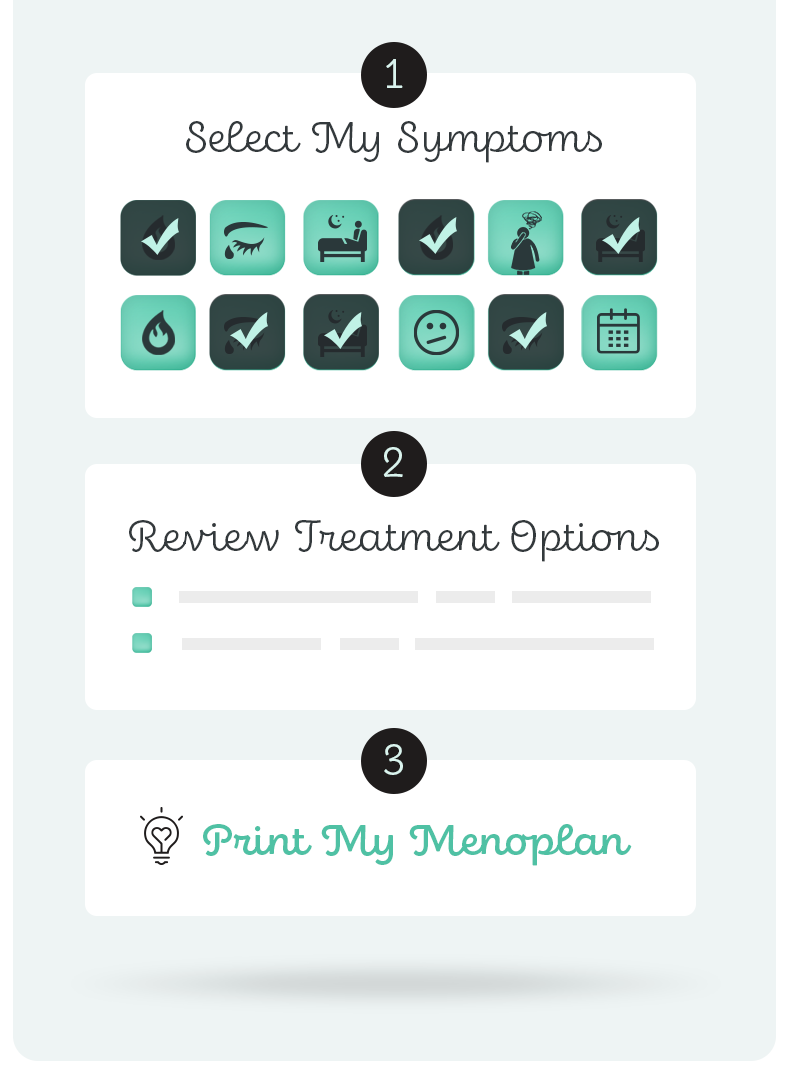Symptoms
WHAT IS IT?
Many women gain weight as we age. Researchers have tried to figure out how much weight gain is due to the menopause transition, and how much is due to aging. Here, we focus on weight gain due to the transition. For the treatment section below, we looked for evidence for what works for women during the menopause transition. The evidence is scant.
WHAT’S HAPPENING TO MY BODY?
Women who have a natural menopause lose lean body mass (muscle), and gain fat in the 8 years before the final menstrual period. For the average woman, the scale registers these changes as a small, gradual, weight gain. For the two years before our final menstrual period to two years after we gain about a pound a year, on average. About 2 years after menopause things settle down, the ratio of lean mass to fat quits changing, and weight stays steady.
Women who weigh more before menopause may gain more. Average weight gain is about half a percent per year in the 8 years before the final menstrual period. That means 0.6 pounds per year if you weigh 120 pounds, 0.8 pounds per year if you weigh 160 pounds, and 1 pound per year if you weigh 200 pounds before menopause.
Body mass index (BMI) also tends to go up over time. BMI is a measure of your weight that considers your height. There are many free websites online that can help you calculate it. BMI tends to increase steadily during the 8 years before the final menstrual period. BMI goes up the most a few years before and after your final menstrual period
Postmenopause our weight usually doesn’t change much. But many of us continue to lose muscle after menopause. Some women lose a little height due to bone loss. We may find that our clothes fit differently when the increase in body fat finds our waist or hips, even if our weight remains about the same.
Here are some numbers from a study of post-menopausal women for 7 years.
- In their early 50s, Women gained about 4 ½ pounds.
- After age 55-59, women gained only 2 pounds.
- Women in their early 60s gained a little for a few years, too.
- In the late 60s and during the 70s women lost weight – 5 ½ pounds on average.
WHAT TO EXPECT
Many women going through natural menopause gain a little bit of weight each year before their final menstrual period and for the next 1-2 years. After that, weight gain slows down, and women may even lose a little weight by their late 60s and early 70s.
Women who have a hysterectomy but keep their ovaries gain weight at about the same rate as women who have a natural menopause.
Women who are under 50 years old when they have their ovaries removed tend to gain the same amount of weight as other women their age. However, women who are older than 50 at the time of their surgery tend to gain more weight post-surgery than other women their age (about ½ pound per year on average).
Studies have looked at differences by ethnicity. White and Black women followed the patterns described in the prior section. Japanese American, and Chinese American women on average did not gain weight gain during the menopause transition. We did not find separate statistics for Hispanic women.
The most important thing to remember is that, overall, weight gain during the menopause transition is not usually large. Just a few pounds. But our bodies do change – with more fat mass, and less muscle mass. Because fat takes more space than the same weight of muscle, you may find your body changing in ways that don’t seem to be reflected in the scale. And of course, these numbers are averages across many women. Your personal experience may be different.



